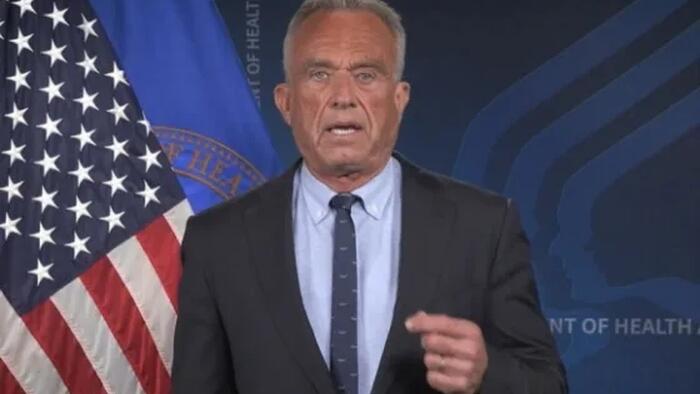


Authored by Madison Fossa via The College Fix,
Arguing that preventable and chronic diseases can be ratcheted back through diet, nutritional health and lifestyle choices, Health Secretary Robert F. Kennedy Jr. has directed medical programs to embed nutrition education into curricula and testing.
“Every future physician should master the language of prevention before they even touch a stethoscope,” he said in announcing the initiative recently.
“In the future, doctors won’t just prescribe drugs, they’ll be able to prescribe diets as well.”
The directive comes as the Department of Health and Human Services works to develop updated U.S. dietary guidelines, expected to be released by December.
The Health Department, along with the Department of Education, has tasked all medical programs across the nation with adding nutrition education into curricula, medical licensing exams, residency requirements, and board certification, according to a news release.
Kennedy, in a video announcing the development, said poor nutrition takes over one million American lives per year through “diet-related illnesses.”
He wrote in a Wall Street Journal op-ed that nothing is being done to address this.
“Accrediting bodies and medical organizations look the other way, declining to set clear requirements. We train physicians to wield the latest surgical tools, but not to guide patients on how to stay out of the operating room in the first place,” Kennedy wrote.
A news release announcing the new requirements stated that while “recent Association of American Medical Colleges data shows that all U.S. medical schools claim to cover nutrition, other studies show the majority of medical students report receiving fewer than two hours of instruction.”
“Research published in 2024 documents that 75% of U.S. medical schools have no required clinical nutrition classes, and only 14% of residency programs have a required nutrition curriculum.”
“Future physicians must graduate prepared to prevent disease—by assessing risk, guiding lifestyle change, providing nutritional counseling, educating patients and addressing environmental factors, with nutrition education as the most proven and powerful tool,” Kennedy stated in his op-ed.
Dr. Joe Kosterich, a well-known medical expert, said he believes the effort is a bipartisan one.
He said he agrees that Kennedy has correctly identified the food chain as a significant contributor to ill health. Furthermore, Kosterich said that in his own experience, nutrition is given very little attention in medical school, which he equates to mechanics not knowing what fuel is best for a car.
Using medical schools as the starting point for a reformation of nutrition education is a good start, according to Kosterich, but added that current doctors should not be neglected either; they need this fundamental knowledge as much as their successors.
Med school representatives at the University of Pennsylvania and UC San Diego did not respond to requests from The College Fix for comment.
